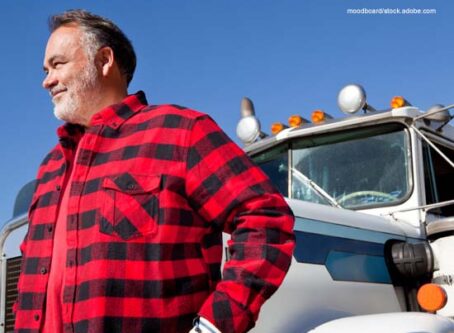Wisconsin Senate backs certain heavier truck loads
Multiple bills halfway through the Wisconsin statehouse are touted to help reduce the number of trucks on roadways in exchange for permitting certain heavier truck loads.
Pig iron
The Senate has voted unanimously to advance one bill that covers permits for overweight transport of pig iron.
Sen. Joan Ballweg, R-Markesan, is behind the bill that would create a definition for metallic or nonmetallic scrap that is identical to the Wisconsin Department of Transportation’s definition for recyclable scrap. The new definition would explicitly include pig iron.
Ballweg previously described pig iron as a raw material used to support the utilization of scrap iron and steel to create new iron and steel products.
She told the Senate Transportation and Local Government Committee that SB363 would allow pig iron to be transported by trucks using the state DOT’s garbage, refuse and recyclable scrap permit. The permit allows trucks to carry overweight loads.
Ballweg told committee members that carriers previously were able to transport pig iron under the aforementioned permit, but WisDOT recently began enforcing its interpretation that pig iron could not be transported using this permit.
She said the changes in the bill would allow the metal-casting industry and its carriers to continue transporting pig iron at the weight levels they did previously. She added that as a result, fewer trucks would be on the road and transportation costs would be reduced.
SB363 includes a provision to ensure federal funding is not affected. Specifically, the heavier truck loads permit would not apply on highways designated as part of the national system of interstate and defense highways.
Not all information provided to lawmakers about the bill was glowing.
According to a fiscal analysis attached to the bill, the state DOT assumes that an increase in heavy truck traffic would lead to “increased degradation of the pavement and structures.” The agency reports costs associated with maintenance and repair resulting from heavier truck loads cannot be adequately estimated.
Despite these concerns, senators voted to advance SB363 to the Assembly for further consideration.
Milk haulers
Another bill to get unanimous endorsement from the Senate covers the transportation of fluid milk products, including whey.
SB431 would authorize WisDOT to issue annual or consecutive month permits for truck loads hauling fluid milk product between processing facilities in vehicle combinations that exceed general highway weight limitations. The bill would authorize permits to operate affected vehicles up to 18,000 pounds in excess of the 80,000-pound maximum gross vehicle weight.
Also sponsored by Ballweg, this bill would prohibit DOT from imposing different conditions for permits for different fluid milk products. SB431 defines fluid milk products as raw milk and liquid milk products and byproducts, including liquid whey and whey byproducts.
Ballweg said during committee discussion on her bill that “whey has long been used as an animal feed and fertilizer, but today, the bulk of whey is further processed for sale as protein powder and other value-added dairy ingredients.”
She added that the change would allow Wisconsin’s dairy industry to compete against other states that permit heavier truck loads for dairy products.
The bill’s fiscal note shared the assessment given for SB363. Additionally, WisDOT analysis states that without a definition of what may all be considered as “milk products,” the agency is not able to estimate the types of commodities that might be transported and cannot account for the number of all load types that may be impacted.
Both SB363 and SB431 await assignment to committee in the Assembly. LL









